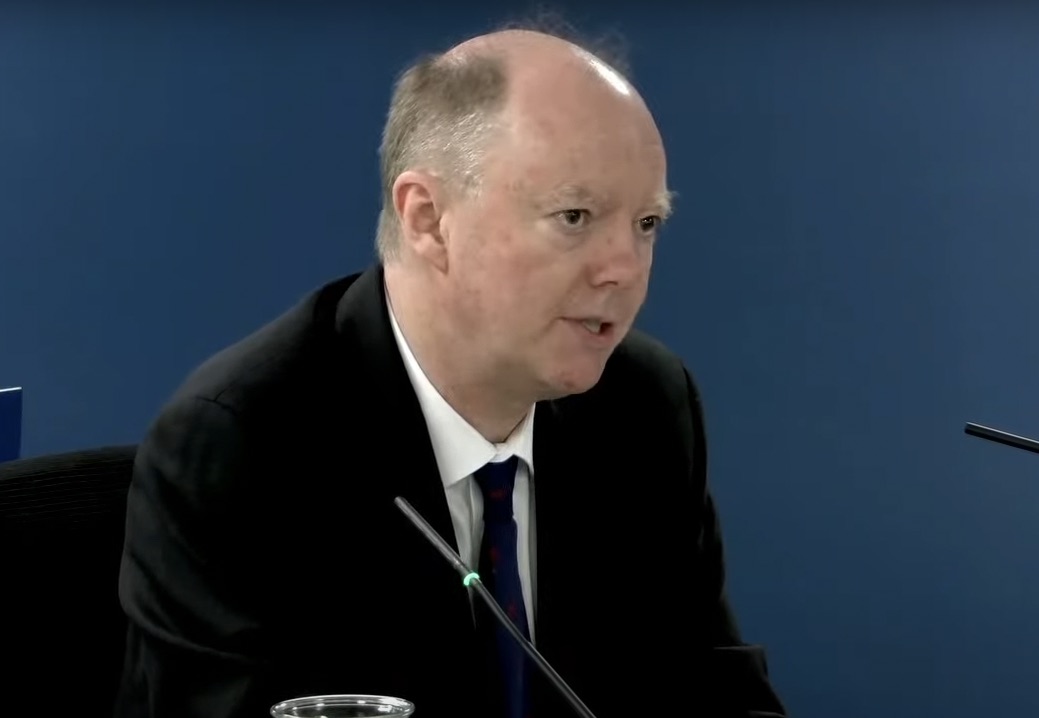England’s Chief Medical Officer Chris Whitty has acknowledged that the Government potentially “overdid” its response to Covid-19. Speaking early this afternoon at the Covid inquiry in central London, Whitty claimed that he “still worr[ies], in retrospect” whether “we got the level of concern [about the virus] right”, as close as he has come to an admission that lockdown rules were too strict.
Whitty today questioned whether politicians and health advisors were “overpitching” the level of threat, “so that people were incredibly afraid of something where, in fact, their actuarial risk was low”, or whether “we were not pitching it enough, and therefore people didn’t realise the risk they were walking into”. He added: “That balance is really hard and arguably, some people would say, if anything we overdid it rather than under-did it at the beginning.”
The epidemiologist has given evidence to the Covid inquiry several times since hearings began in June 2023. Last November, Whitty suggested that the first lockdown in March 2020 was imposed “a bit too late” and expressed his regret that mass gatherings hadn’t been banned sooner. He also claimed that the Government’s Scientific Advisory Group for Emergencies (SAGE) had discussed the “downsides” of lockdowns early in the pandemic.
During today’s appearance, Whitty also stated that “we have to assume a future pandemic on this scale will occur”, calling it “a certainty”. He admitted that “the messaging near the beginning [of Covid] was quite confused”, and this was because “it was not entirely clear who was ultimately responsible for making decisions in this fast-moving situation.” In his view, the situation leading up to the first lockdown was “catastrophic”.
Whitty’s testimony followed that of NHS advisor Kevin Fong this morning, who claimed that treating patients during the pandemic was more harrowing than his experience with victims of the 7/7 bombings in 2005. Fong cited a conversation he had with an intensive care doctor, in which the latter compared dealing with Covid-afflicted patients to “a terrorist attack every day”.
Speaking today, Whitty said he “fully concur[red]” with Fong’s evidence and suggested that the scale of the second wave of the virus, which lasted from the autumn of 2020 until the following spring, was “underappreciated” by the British public. Module 3 of the inquiry is currently underway, and will conclude at the end of November.










Join the discussion
Join like minded readers that support our journalism by becoming a paid subscriber
To join the discussion in the comments, become a paid subscriber.
Join like minded readers that support our journalism, read unlimited articles and enjoy other subscriber-only benefits.
Subscribe